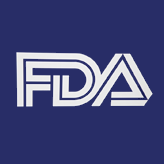FDA Approves Ipilimumab for Pediatric Melanoma
The FDA has expanded the approval of ipilimumab (Yervoy) to include the treatment of pediatric melanoma patients 12 years and older with unresectable or metastatic disease.
The expanded approval includes pediatric patients 12 years and older

The US Food and Drug Administration (FDA) has expanded the approval of ipilimumab (Yervoy) to include the treatment of pediatric melanoma patients 12 years and older with unresectable or metastatic disease.
“Metastatic melanoma is extremely rare in children and adolescents, which makes it particularly difficult to investigate in clinical trials,” said Lia Gore, MD, of the University of Colorado School of Medicine and Children’s Hospital of Colorado, in a press release. “Though designing clinical trials in small pediatric populations can be challenging, this group of investigators committed to bringing a new therapy to those in need.”
The safety and efficacy of ipilimumab in pediatric patients was evaluated in two trials that included 45 pediatric patients. The first study, a dose-finding study included 33 solid tumor patients with a median age of 13 years (range, 2–21) who had relapsed or refractory disease.
The second study-an open-label, single-arm trial-included 12 melanoma patients (ages 12–16 years) with unresectable, stage III/IV disease, all of whom were treated with ipilimumab. Four of the patients received 3-mg/kg ipilimumab and eight of the patients received 10-mg/kg ipilimumab intravenously over 90 minutes every 3 weeks for four doses.
Across the two studies, 17 melanoma patients (≥ 12 years old) were treated with ipilimumab. Among these, two patients had objective responses, with one partial response lasting 16 months.
The FDA-approved ipilimumab dose for pediatric melanoma patients is 3 mg/kg, administered intravenously every 3 weeks for four doses.
“Ipilimumab’s approval represents the culmination of a long effort and gives physicians the ability to expand immuno-oncology-one of the most exciting areas of medicine-for the treatment of young adults with metastatic melanoma,” said Gore, in the release.
The FDA includes a boxed warning for ipilimumab, as the drug is associated with severe to fatal immune-mediated adverse events. The most common of these events are endocrinopathy, enterocolitis, dermatitis, hepatitis, neuropathy, and toxic epidermal necrolysis.